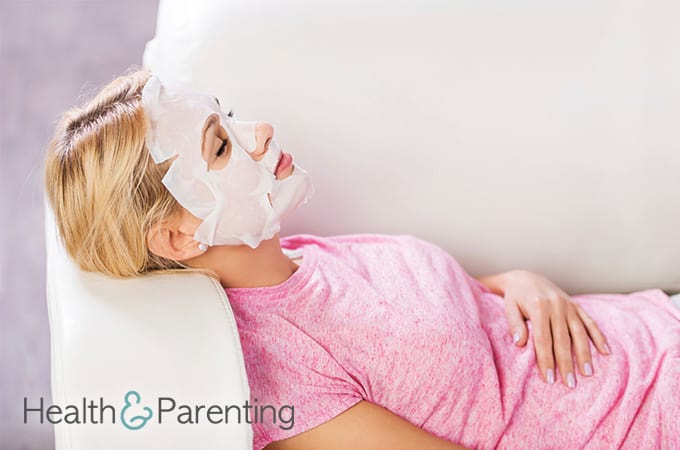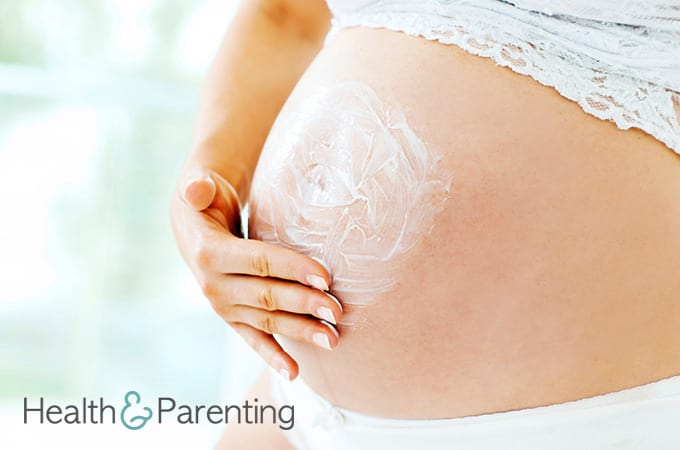If you’re reading this with a face covered in acne, you might be wondering where your pregnancy glow is. All you seem to hear people say about pregnant women is that they are blooming, glowing and looking beautiful. If you’re experiencing pregnancy acne, you may feel rather differently about the affect pregnancy has had on your skin.
Acne can develop on your face, back and chest. It may be more prominent around your hairline. Acne can consist of red pimples, whiteheads and blackheads. While not a serious condition, it may make you feel quite self conscious. This is especially true during pregnancy when you are already dealing with a whole host of body changes.
What causes acne in pregnancy?
You can point your finger at hormones again here. They seem to be playing havoc with your entire body, don’t they? During the first trimester, your hormone levels increase rapidly. The pregnancy hormones increase sebum production. Sebum is an oily secretion released by glands in the skin. Too much sebum can quickly lead to blocked pores and spots.
You may just get the odd spot, or you may find yourself suffering from an extreme break out. Some women who have suffered from acne longterm, find that their skin clears up during the pregnancy. Whereas, other women who have always had problem-free skin, may find themselves suffering from acne.
Once you reach the second trimester, hormone production slows down. Most women notice a decrease in their pregnancy symptoms at this point, and this includes acne. For some women, however, the acne will persist to the end of the pregnancy. Rest assured though, a few weeks after the birth, your skin will return to its normal state.
Safe treatment for acne
You can try the following tips to manage your acne:
- Use a gentle face soap and gentle cleanser
- Try to avoid using harsh chemicals on your skin. There are plenty of natural cosmetic products on the market these days
- Be careful to remove all of your makeup before bed
- Avoid wearing makeup if you can
- Trying switching your normal moisturiser for coconut oil
- Eat a healthy diet, and avoid greasy fatty foods
- Do not pick the spots as this can cause scarring
- Make sure you get plenty of sleep and take time to relax. Stress and exhaustion can both make you more prone to outbreaks
Do not use acne medications without speaking to your healthcare provider first. Some acne medications are dangerous to take during pregnancy because they contain Vitamin A. Your healthcare provider will be able to advise you which ones are safe to use.
Written by Fiona, proud owner of a toddler, @fiona_peacock
This information is not intended to replace the advice of a trained medical doctor. Health & Parenting Ltd disclaims any liability for the decisions you make based on this information, which is provided to you on a general information basis only and not as a substitute for personalized medical advice. All contents copyright © Health & Parenting Ltd 2018. All rights reserved.











